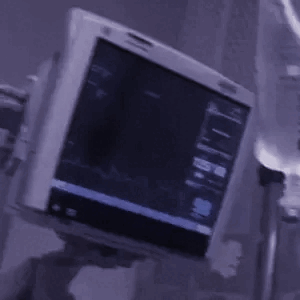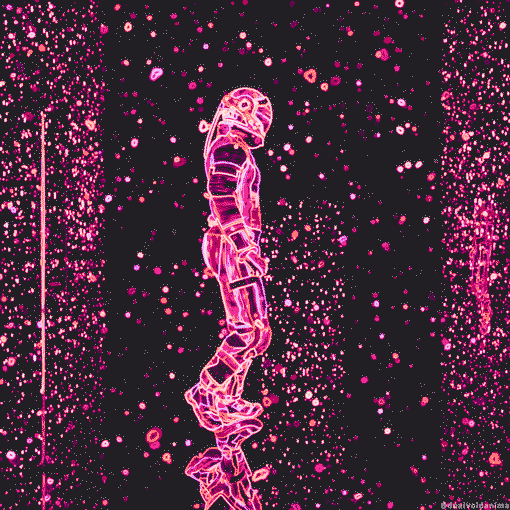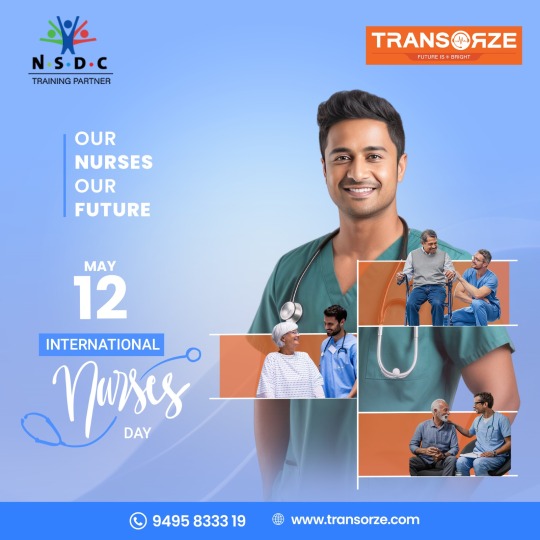#hospital administration
Text
“I’m going to talk about this boring thing I’m very passionate about.”
About patient flow.
#medicine#med school#medblr#university#college#high school#education#patient flow#hospital administration#emergency medicine#pinned
157 notes
·
View notes
Text
0 notes
Text

#hospital administration#international diploma in hospital administration#hospital administration course#diploma in hospital administration
0 notes
Text
Best Hospital Administration coaching in Dubai
Explore Best Hospital administration course in Dubai. Transorze Solutions in Dubai providing online training for International diploma in hospital administration. A career in hospital is not a small thing come and learn Hospital administration course with Transorze. Transorze is the best coaching center in Dubai.
#hospital administration#diploma#hospital management#medical field#healthcare#medical career#transorze solutions#transorze training#training institute#dubai online learning#online training dubai
0 notes
Text
"The sorting of patients into disruptive and calm was an important separation principle in psychiatry. In general, the hospitals were divided into four or five types of wards that each had a particular purpose. The newly arrived patients were admitted to the first of these wards, a “reception and observation department,” which consisted of several large interconnected bed wards where the admitted patients could be constantly observed. The reception wards were divided in two, with calm and disruptive patients kept separately. If the patients’ condition improved, they were often moved to a “transition ward,” where the conditions were a little freer. If there were further improvements, they could be transferred to a “reconvalescence ward,” where the patients were to regain their strength, were active throughout the day, worked and were prepared for discharge. The patients whose illness made slow progress were placed at the “care wards,” which were divided into calm and disturbed. Finally, there were special “sick or invalid departments” that housed hospitalised patients with physical illnesses and the elderly, infirm or senile patients. These wards were also divided the same way as the others. The total number of beds for wards with disturbed patients was 40–50% of the hospital’s beds. The committee whose task it was to investigate the most appropriate layout for a psychiatric hospital believed that this, together with the outdated hospital buildings, was a serious problem.
The committee highlighted that the disturbed wards at some hospitals had become so large, with up to 36 patients on one ward, that it was, among other things, difficult “to create calm in the departments and give the patients a differentiated treatment.” In particular, at the psychiatric hospitals in Viborg and Middelfart the situation was stark, while other institutions such as Aarhus and Vordingborg were better positioned, since modernisations had been carried out a few years earlier. In addition, a number of the hospitals were characterised by being built years ago and were often in buildings that had previously been used for other purposes. The committee emphasised that extensive work lay ahead in which the psychiatric hospitals “to the greatest extent should be designed with the possibility for carrying out modern forms of treatment and examinations."
- Jesper Vaczy Kragh, Lobotomy Nation: The History of Psychosurgery and Psychiatry in Denmark (Springer: 2021) p. 138-193.
#directorate of the state mental hospitals#mental hospital#aarhus#vordingborg#hospital administration#psychiatric clinic#psychiatric power#classification and segregation#danish history#madness and civilization#lobotomy nation#academic quote#reading 2023#history of mental illness
1 note
·
View note
Link
#market research future#healthcare mobility solutions#healthcare management#hospital administration#health mobility
0 notes
Text
Best Master Of Hospital Administration Course In West Bengal
Join the ranks of successful healthcare leaders with the best Master of Hospital Administration course in West Bengal.
Prepare to make a meaningful impact in healthcare management. Enroll now and take charge of your professional destiny in the field of healthcare.

0 notes
Text
best oil and gas engineering course in kollam, kerala
The oil and gas technology course provides a thorough examination of the key areas of the energy industry. Students get a thorough understanding of the industry's basic processes, which include reservoir engineering, drilling operations, and production optimization. This course, which focuses on the most recent technological breakthroughs and sustainability practices, prepares students to navigate and contribute to the ever-changing world of oil and gas exploration and production.
1 note
·
View note
Text
Hospital administration course kochi

Diploma in Hospital Administration Course in Kochi: Your Path to Healthcare Management Excellence
Why Choose Kochi for Diploma in Hospital Administration?
Healthcare Hub: Kochi boasts a thriving healthcare ecosystem with numerous hospitals, clinics, and healthcare facilities, offering ample opportunities for practical training and internships.
Academic Excellence: Kochi is home to prestigious educational institutions and training centers that uphold high standards of academic excellence and provide quality education in healthcare management.
Cultural Diversity: Students in Kochi experience a rich cultural milieu, enhancing their overall learning experience and exposure to diverse perspectives in healthcare administration.
#diplomacourse#hospital administration#training#courses#online#hospital#career#healthcarecourses#healthcareeducation
0 notes
Text
Hospital Administration Courses After 12th in Uttar Pradesh | Certificate Course in Hospital Administration | Hospital Administration Distance Learning Online
Hospital Administration, also known as Healthcare Management or Healthcare Administration, is a field dedicated to the effective and efficient management of healthcare organizations and systems. Professionals in hospital administration, often referred to as healthcare administrators or managers, play a crucial role in ensuring the smooth operation of healthcare facilities, optimizing patient care, and navigating the complex healthcare landscape.

Key Components of Hospital Administration:
Strategic Planning:
Hospital administrators are involved in long-term strategic planning, aligning the institution's goals with the evolving needs of the community and healthcare industry.
Financial Management:
Managing budgets, financial resources, and healthcare reimbursement systems are integral to hospital administration. Administrators ensure financial sustainability while maintaining the quality of care.
Quality Improvement:
Focused on enhancing the overall quality of healthcare services, administrators implement systems to monitor and improve patient outcomes, safety, and satisfaction.

Human Resource Management:
Overseeing staffing, training, and professional development of healthcare personnel to ensure a skilled and motivated workforce.
Regulatory Compliance:
Hospital administrators navigate the complex web of healthcare regulations, ensuring that the institution complies with local, state, and federal laws.
Information Technology:
Embracing and implementing health information systems to enhance patient care, manage data, and streamline administrative processes.
Community Engagement:

Building relationships with the community, collaborating with other healthcare organizations, and fostering partnerships to address the healthcare needs of the population.
Patient Advocacy:
Advocating for patient rights, safety, and a positive healthcare experience is a fundamental responsibility of hospital administrators.
Roles and Responsibilities:
Chief Executive Officer (CEO):
The highest-ranking executive responsible for the overall leadership and direction of the hospital.
Chief Operating Officer (COO):
Manages day-to-day operations, ensuring the delivery of quality healthcare services.
Chief Financial Officer (CFO):
Oversees financial planning, budgeting, and financial reporting to sustain the hospital's financial health.
Chief Nursing Officer (CNO):
Manages nursing staff and ensures the delivery of high-quality nursing care.
Health Information Manager:
Focuses on managing health information systems, data security, and information exchange within the hospital.
Importance of Hospital Administration:
Patient-Centered Care:
Hospital administration contributes to creating an environment that prioritizes patient-centered care, safety, and positive outcomes.
Operational Efficiency:
Efficient management practices enhance the overall functioning of the hospital, ensuring optimal resource utilization and reduced operational costs.
Strategic Development:
Hospital administrators strategically plan for the future, adapting to healthcare trends, technological advancements, and community needs.
Resource Allocation:
Effective resource allocation ensures that the hospital has the necessary personnel, equipment, and facilities to provide high-quality healthcare services.
Compliance and Risk Management:
By navigating complex regulations and managing risks, hospital administrators contribute to maintaining the institution's legal and ethical standards.
Hospital administration is at the intersection of healthcare, business, and public service. Professionals in this field play a pivotal role in shaping the healthcare landscape, improving patient outcomes, and fostering the sustainability and growth of healthcare organizations.
Hospital Administration Course in Uttar Pradesh:
Academic Institutions:
Explore renowned universities, colleges, and institutes in Uttar Pradesh offering courses in Hospital Administration.
Examples: King George's Medical University (KGMU), Lucknow; Sanjay Gandhi Postgraduate Institute of Medical Sciences (SGPGI), Lucknow.
Online Courses:
Consider reputable online platforms that offer Hospital Administration courses.
Platforms: Coursera, edX, and LinkedIn Learning may provide online courses.
Curriculum of Hospital Administration:
Core Subjects:
Healthcare Management Principles
Hospital Operations Management
Healthcare Policy and Ethics
Healthcare Finance and Budgeting
Specialized Areas:
Quality Management in Healthcare
Human Resource Management
Healthcare Information Systems
Strategic Planning in Healthcare
Importance of Hospital Administration:
Efficient Operations: Hospital administrators ensure smooth day-to-day operations for optimal patient care.
Financial Management: They manage budgets, billing, and financial aspects to sustain the hospital.
Quality Improvement: Administrators focus on maintaining and enhancing the quality of healthcare services.
Policy Implementation: Hospital administrators implement healthcare policies and ensure compliance.
Strategic Planning: They contribute to long-term planning, expansion, and community health initiatives.
Getting a Job in a Hospital after a Hospital Administration Course:
Networking:
Connect with professionals in the healthcare industry through networking events, conferences, and online platforms.
Internships and Practical Experience:
Seek internships during your course to gain practical experience and enhance your resume.
Professional Certifications:
Obtain relevant certifications, such as Certified Healthcare Administrative Professional (cHAP), to stand out.
Job Portals:
Utilize online job portals to search for hospital administration positions.
Websites like Naukri.com, LinkedIn, and Indeed can be valuable resources.
Further Education:
Consider pursuing advanced degrees or specialized certifications for career advancement.
Top Cities in Uttar Pradesh:
Lucknow
Kanpur
Varanasi
Agra
Allahabad (Prayagraj)
Ghaziabad
Noida
Meerut
Aligarh
Mathura
History of Hospital Administration:
The field of hospital administration has evolved over the years:
Early History:
Hospitals have existed for centuries, often managed by religious orders.
Administration was informal, focusing on patient care rather than systematic management.
20th Century:
Industrialization led to the need for organized hospital management.
The Flexner Report (1910) in the U.S. emphasized the importance of professional hospital administration.
Post-World War II:
The demand for healthcare increased, leading to a greater emphasis on efficient hospital management.
Hospital administration emerged as a distinct field of study and practice.
Modern Era:
Technological advancements and increased complexity in healthcare services necessitated specialized administrators.
Today, hospital administration plays a crucial role in ensuring effective healthcare delivery.
Understanding the history, obtaining relevant education, and gaining practical experience are key steps in contributing to the field of hospital administration and pursuing a rewarding career in healthcare management.
Further Education and Specialization:
Master's Degrees:
Consider pursuing a Master's in Hospital Administration (MHA) or Master of Business Administration (MBA) with a focus on healthcare management for advanced knowledge and career opportunities.
Healthcare Leadership Programs:
Explore leadership programs that provide specialized training for managerial roles in healthcare institutions.
Specialized Certifications:
Obtain certifications in areas such as Health Information Management (CHIM), Healthcare Quality Management (CHQM), or Health Information Systems Management (CHISM) to demonstrate expertise.
Evolving Role of Technology:
Health Information Systems:
Stay updated on the integration of technology in healthcare, including electronic health records and data analytics.
Telemedicine and Remote Healthcare:
Familiarize yourself with the growing role of telemedicine and digital health in healthcare administration.
Networking and Professional Organizations:
Join Professional Associations:
Become a member of organizations like the American College of Healthcare Executives (ACHE) or the Healthcare Information and Management Systems Society (HIMSS).
Attend Conferences:
Participate in industry conferences and seminars to stay informed about current trends and network with professionals.
Challenges and Opportunities:
Navigating Regulatory Changes:
Stay informed about evolving healthcare policies and regulations to effectively manage compliance.
Addressing Healthcare Disparities:
Explore ways to contribute to reducing healthcare disparities and improving accessibility.
Adapting to Technological Advances:
Embrace technological advancements in healthcare delivery, ensuring efficient and secure systems.
Global Perspectives:
International Opportunities:
Explore opportunities for international collaboration and learn about global healthcare management practices.
Cultural Competence:
Develop cultural competence to work effectively in diverse healthcare settings.
Continuous Learning:
Professional Development:

Engage in continuous professional development through workshops, webinars, and further education to stay relevant in the field.
Research and Publications:
Contribute to the field through research and publications, sharing insights and contributing to the knowledge base.
Conclusion:
Hospital administration is a dynamic and evolving field that plays a critical role in shaping the healthcare landscape. As healthcare systems continue to advance and face new challenges, professionals in hospital administration will be at the forefront of ensuring effective and compassionate healthcare delivery. Continuous learning, staying abreast of industry trends, and actively participating in the healthcare community are essential components of a successful and fulfilling career in hospital administration.
Diagnostic Equipment:
X-ray Machine:
Role: Used for imaging bones and internal structures, aiding in the diagnosis of fractures, tumors, and other conditions.
Ultrasound Machine:
Role: Utilized for non-invasive imaging of organs, tissues, and developing fetuses, assisting in diagnostics and monitoring.
MRI (Magnetic Resonance Imaging):
Role: Produces detailed images of internal structures using magnetic fields, valuable for detecting soft tissue abnormalities.
CT (Computed Tomography) Scanner:
Role: Combines X-rays and computer technology to create cross-sectional images, aiding in the diagnosis of various conditions.
Monitoring Devices:
ECG (Electrocardiogram) Machine:
Role: Records the electrical activity of the heart, assisting in the diagnosis of cardiac abnormalities.
Pulse Oximeter:
Role: Measures oxygen saturation levels in the blood, crucial for monitoring respiratory and cardiovascular health.
Blood Pressure Monitor:
Role: Measures blood pressure levels, essential for assessing cardiovascular health.
Holter Monitor:
Role: Records continuous ECG data over a specific period, useful for detecting irregularities not captured during a standard ECG.
Surgical Instruments:
Scalpel, Forceps, and Scissors:
Role: Basic tools for surgical procedures, used for cutting, grasping, and dissecting tissues.
Surgical Drills and Saws:
Role: Essential for orthopedic and neurosurgical procedures, aiding in bone removal and shaping.
Electrocautery:
Role: Used to cut or coagulate tissues during surgery by applying high-frequency electrical currents.
Surgical Microscopes:
Role: Provide magnification and illumination during delicate surgical procedures, enhancing precision.
Life Support Equipment:
Ventilators:
Role: Assist patients with breathing difficulties by delivering oxygen and removing carbon dioxide.
Defibrillators:
Role: Deliver electric shocks to the heart to restore normal rhythm in cases of cardiac arrhythmias or arrest.
Infusion Pumps:
Role: Administer controlled amounts of fluids, medications, or nutrients to patients intravenously.
Cardiopulmonary Bypass Machine:
Role: Used during cardiac surgeries to temporarily take over the pumping function of the heart and lungs.
Laboratory Equipment:
Microscopes:
Role: Essential for examining blood, tissues, and other specimens for diagnostic purposes.
Centrifuges:
Role: Separate components of blood or other fluids for analysis.
Autoclaves:
Role: Sterilize equipment and supplies to maintain aseptic conditions in laboratories and medical facilities.
Analyzers (Hematology, Chemistry):
Role: Automated machines that analyze blood and other samples for various parameters, aiding in diagnostics.
Patient Care Equipment:
Hospital Beds:
Role: Provide comfort and support for patients during their stay, often equipped with adjustable features.
Wheelchairs and Stretchers:
Role: Facilitate patient mobility within the hospital and transportation between departments.
Patient Monitors:
Role: Track vital signs, such as heart rate and oxygen saturation, in real-time for continuous patient monitoring.
Wound Care Equipment:
Role: Includes dressings, bandages, and specialized tools for wound management and care.
These are just a few examples of the diverse range of equipment and instruments used in hospitals. Each plays a crucial role in diagnosis, treatment, and overall patient care, contributing to the effective functioning of healthcare facilities.
**About Pratanu Banerjee - Pratanu Banerjee is a teacher of keyboard, harmonica, flute, Spanish guitar, music therapy, reiki, money reiki, angel reiki, kundalini reiki, angel reiki, reiki grandmaster, holy fire reiki, unicorn reiki, emotional empowerment technique, self hypnosis, french, English, anthropology, hospital administration etc. These are certificate courses by Pratanu Banerjee at Institute of performing art and mind power development affiliated under world art organization. Cal 91–8017517171 **
0 notes
Text

Ready to soar to new heights?
We've got the ticket! 🎓
👨⚕️ Become a Medical Scribe and we'll shower you with up to $14,600 in scholarships! Plus, snag a FREE laptop! 💻
🏥 Unlock 10% off on Medical Coding, Hospital Administration, and Digital Marketing courses.
Your path to success just got a lot more affordable! 💰
Don't wait – take the leap and transform your career today! 🌠
Our Available courses:
🩺𝐌𝐞𝐝𝐢𝐜𝐚𝐥 𝐒𝐜𝐫𝐢𝐛𝐢𝐧𝐠
🩺𝐌𝐞𝐝𝐢𝐜𝐚𝐥 𝐂𝐨𝐝𝐢𝐧𝐠
🩺𝐌𝐞𝐝𝐢𝐜𝐚𝐥 𝐓𝐫𝐚𝐧𝐬𝐜𝐫𝐢𝐩𝐭𝐢𝐨𝐧
🩺𝐃𝐢𝐩𝐥𝐨𝐦𝐚 𝐢𝐧 𝗛𝗼𝘀𝗽𝗶𝘁𝗮𝗹 𝗔𝗱𝗺𝗶𝗻𝗶𝘀𝘁𝗿𝗮𝘁𝗶𝗼𝗻
💻𝐃𝐢𝐠𝐢𝐭𝐚𝐥 𝐌𝐚𝐫𝐤𝐞𝐭𝐢𝐧𝐠
📝𝐎𝐄𝐓 𝐓𝐫𝐚𝐢𝐧𝐢𝐧𝐠
For more details : www.transorze.com
#medical coding#medical scribing#medical transcritpion#hospital administration#medical courses#healthcare career#online courses#offline training#scholarship#offer#transorze solutions
0 notes
Text
Hospital Administration In Calicut

🏥 𝐉𝐨𝐢𝐧 𝐎𝐮𝐫 𝐃𝐢𝐩𝐥𝐨𝐦𝐚 𝐢𝐧 𝐇𝐨𝐬𝐩𝐢𝐭𝐚𝐥 𝐀𝐝𝐦𝐢𝐧𝐢𝐬𝐭𝐫𝐚𝐭𝐢𝐨𝐧 𝐂𝐨𝐮𝐫𝐬𝐞 🏥
Are you passionate about healthcare and want to play a vital role in the efficient management of hospitals and healthcare facilities? Look no further! Our Diploma in Hospital Administration course is the perfect stepping stone to kickstart your career in this dynamic field.
📚 𝐂𝐨𝐮𝐫𝐬𝐞 𝐇𝐢𝐠𝐡𝐥𝐢𝐠𝐡𝐭𝐬:
👉Comprehensive curriculum covering healthcare management, ethics, finance, and more.
👉Real-world experience through internships at leading hospitals.
👉Expert faculty with years of experience in the healthcare industry.
👉A supportive learning environment to help you excel in your studies.
🌟 𝐖𝐡𝐲 𝐂𝐡𝐨𝐨𝐬𝐞 𝐎𝐮𝐫 𝐃𝐢𝐩𝐥𝐨𝐦𝐚 𝐏𝐫𝐨𝐠𝐫𝐚𝐦?:
✅Fast-track your entry into the healthcare industry.
✅Gain practical knowledge and skills.
✅Open doors to a wide range of healthcare administration careers.
✅Affordable and flexible course options.
#Hospital administration#hospital admin course#courses#online courses#best#career#scope#salary#training#diploma
0 notes
Text

0 notes
Text


#yemen#jerusalem#tel aviv#current events#palestine#free palestine#gaza#free gaza#news on gaza#palestine news#news update#war news#war on gaza#biden administration#nasser medical complex#nasser hospital#joe biden#gaza genocide#genocide
2K notes
·
View notes
Text
International Diploma in Hospital Administration
Hurry up ! Offer valid till May 15 2024

Transorze providing mega offer for International Diploma in Hospital Administration. Don't miss out this offer. join quickly . Transorze providing free NSDC certificates and international certificates. You will get 2 month internship with free training in skills.
Enroll Now.
Contact : 9495833319
visit : https://transorze.com/our-programs/diploma-in-hospital-administration/
#hospital administration course#healthcare#medical career#hospital administration#offer#transorze solutions#online training
0 notes
Text
Nurse Retention: Is It Important?
This blog post is about the role of retention of nurses as it affects nurses, patients, and hospital organizations. With a critical nursing shortage currently occurring, keeping the nurses you have seems to me to be a wise step so why aren’t the facilities doing anything to do so?
I have read numerous articles about ways to improve nurse retention and the ideas are well thought out, easy to…

View On WordPress
#Health care#hospital administration#Ideas for retention for nurses#Mentoring nurses#Nurse#Nurse Retention#nurses#Nursing#Nursing shortage#Registered nurse#support for nurses
0 notes